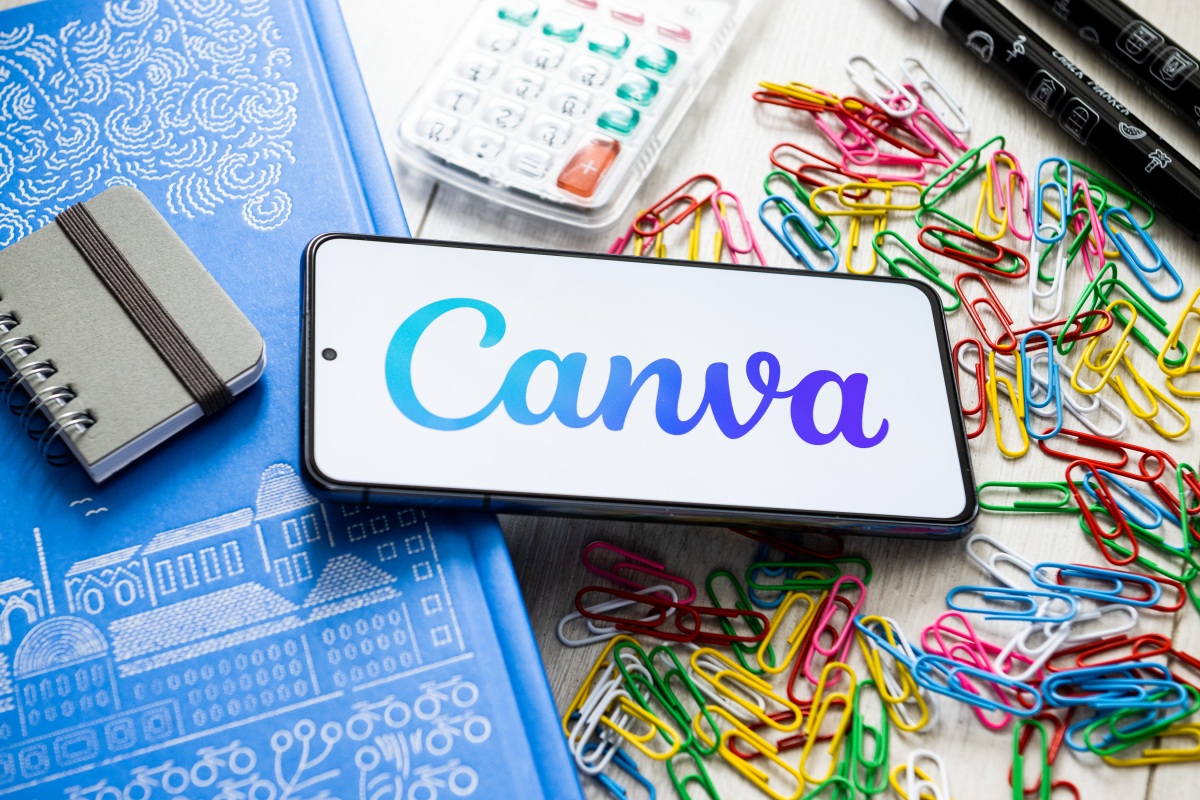Business
T. Rowe Price has marked down its stake in Canva by 67.6%

Last summer, Blackbird, one of Australia’s largest venture operations, marked down the value of one of its most prized stakes, in the Sydney-based design platform Canva. Valued at $40 billion by investors in a $200 million round in the fall of 2021, Blackbird adjusted its own valuation of the company 36% to $25.6 billion.
Now, T. Rowe Price — the mutual fund goliath that had began investing aggressively into late-stage startups nearly a decade ago, continued to fund them throughout the pandemic, and which led that $40 billion round in 2021 — has marked down the value of its stake in Canva even more dramatically, adjusting it downward by a whopping 67.6%. (T. Rowe’s Blue Chip Growth Fund, which owns several classes of Canva shares but predominantly Series A shares, has to date invested $99.1 million in Canva and states in its most recent prospectus, dated March 31, that it now values those shares on a cost-adjusted basis at $32.1 million.)
Asked for comment earlier today, a spokesman for Canva responded that, “Overall, despite the broader market conditions, our metrics continue to rapidly move in the right direction. We just crossed 135 million monthly users, $1.5 billion in annualized revenue and had our sixth year of profitability.”
T. Rowe’s “changes in valuation are a result of [Canva] being marked to market when compared to our publicly listed peers,” the spokesman said.
T. Rowe’s investment in Canva represents a minuscule amount of money for the sprawling investment firm. Its Blue Chip Growth Fund had roughly $53 billion in assets under management at the end of the first quarter of this year, down from $63 billion a year ago, in June 2022.
Still, it’s notable that one of the savviest asset managers in the U.S. thinks a company that was for a time the fifth most valuable startup on the planet is currently worth far less — essentially $13 billion and not $40 billion.
Asked if Canva has adjusted its own, independent 409A valuation to match up with T.Rowe’s assessment — T. Rowe’s markdown is really just its opinion, after all — Canva’s spokesman said its assessment does not match that of T. Rowe but declined to comment further.
Naturally, Canva is far from alone in being emphatically marked down by its backers after soaring to new valuation heights in 2021. Klarna, the Stockholm-based buy-now-pay-later provider saw an even steeper markdown a year ago, dropping 85% from the $45.6 billion valuation that it was assigned in 2021 to $6.5 billion.
Klarna, which proactively accepted its reduced valuation, has since tightened its lending standards and slashed costs, including through repeated layoffs, and says it is now “firmly on track” to reach monthly profitability in the second half of the year.
Like so many other outfits right now, both businesses are actively being transformed by — and looking to take advantage of — generative artificial intelligence.
In a press release late last week, Klarna credited some of its current momentum to OpenAI, saying an integration with its large language model is “accelerating Klarna’s evolution into a digital financial assistant.”
In an effort to maintain its own leading position in the world of graphic design collaboration, Canva has also integrated generative AI across its product suite, telling Fast Company in March that much of what is now infused throughout has been built in-house through long-term investment and acquisition.
Though Canva also relies partly on major large language models — it uses them piecemeal, says its spokesman — co-founder and CEO Melanie Perkins told FC that it has intentionally relied less on the work of others so that it can promise users that “anything you create in Canva is yours.”
As for AI’s impact on Canva’s valuation going forward, that remains to be seen. While public shareholders will eventually decide what they think the company is worth, an offering isn’t forthcoming, not yet anyway.
Asked about a possible IPO, Canva’s spokesman said today that there are no plans on the horizon. Meanwhile in March, Canva co-founder and COO Cliff Obrecht (who is married to Perkins), suggested to Barron’s that it’s now very much top of mind for the now 11-year-old company.
“It’s not the right market to go out right now. But obviously, it becomes an inevitability at our size,” he told the outlet. “It’s on the horizon, but not on the imminent horizon.”
-

 Entertainment6 days ago
Entertainment6 days agoWordPress.org’s login page demands you pledge loyalty to pineapple pizza
-

 Entertainment7 days ago
Entertainment7 days agoRules for blocking or going no contact after a breakup
-

 Entertainment6 days ago
Entertainment6 days ago‘Mufasa: The Lion King’ review: Can Barry Jenkins break the Disney machine?
-

 Entertainment5 days ago
Entertainment5 days agoOpenAI’s plan to make ChatGPT the ‘everything app’ has never been more clear
-

 Entertainment4 days ago
Entertainment4 days ago‘The Last Showgirl’ review: Pamela Anderson leads a shattering ensemble as an aging burlesque entertainer
-

 Entertainment5 days ago
Entertainment5 days agoHow to watch NFL Christmas Gameday and Beyoncé halftime
-

 Entertainment3 days ago
Entertainment3 days ago‘The Room Next Door’ review: Tilda Swinton and Julianne Moore are magnificent
-

 Entertainment4 days ago
Entertainment4 days agoPolyamorous influencer breakups: What happens when hypervisible relationships end





















